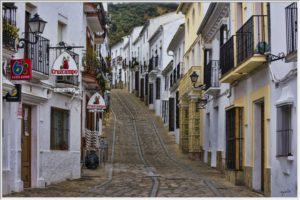
Representation matters, so why not “do it for the culture” when considering your #travelgoals? The unfortunate brilliance of colonization and white supremacy lies in leaving absolutely no stone unturned, so many “dreams vacations” often center Western European/Anglo-American history, art, architecture, and culture. While the African continent is well known for its natural beauty and incredible safaris, this list highlights the unparalleled wonders of African culture, innovation, and celebration.
 MONUMENTS:
MONUMENTS:
African Resistance Monument, Senegal
The tallest statue in Africa was unveiled in 2010 by former Senegalese president Abdoulaye Wade.
Kwame Nkrumah Mausoleum, Ghana
This is the resting place of Kwame Nkrumah, the first president of Ghana after achieving independence from Britain. In 2000, he was voted Africa’s man of the millennium by listeners to the BBC World Service.

Island of Goree, Senegal
UNESCO (United Nations Educational, Scientific and Cultural Organization) details that from the “15th to the 19th century, the island was the largest slave-trading center on the African coast. Ruled in succession by the Portuguese, Dutch, English, and French, its architecture is characterized by the contrast between the grim slave-quarters and the elegant houses of the slave traders. Today it continues to serve as a reminder of human exploitation and as a sanctuary for reconciliation.
Uhuru Gardens, Kenya
“Ubhuru” means freedom in Swahili. The gardens include monuments celebrating Kenya’s independence from Britain in 1963.
PREHISTORIC/NATURAL WONDERS:
Victoria Falls, Zimbabwe
Victoria Falls and Zambezi National Parks are situated on the western tip of Zimbabwe. The Falls, known by the local Kololo tribe as Mosi oa Tunya- The Smoke that thunders, is one of the “Seven Wonders of the World” and one of the largest and most spectacular waterfalls on earth.

Domboshava, Zimbabwe
This popular hiking spot features stunning natural rock formations and cave drawings dating back 6,000 years.
RUINS/HISTORICAL HOMES:
Khami Ruins, Zimbabwe
UNESCO describes Khami as being of “great archaeological interest” and that “the discovery of objects from Europe and China shows that Khami was a major center for trade over a long period of time.”
Aksum, Ethiopia
Located in northern Ethiopia, the ruins of the ancient Aksumite Civilization include monolithic obelisks, royal tombs, and the palace ruins dating to the 6th and 7th centuries AD.
Asante Traditional Buildings, Ghana
These 13 traditional buildings from the Asante civilization are the few left remaining after the kingdom fell to British occupation.
 SACRED SITES:
SACRED SITES:
Cathedral Church of Christ, Nigeria
Stunning Anglican cathedral in the capital of Lagos, Nigeria.
Jamia Mosque, Kenya
From Wikipedia: “The Jamia Mosque retains a classic Arabic Muslim architectural style with extensive use of marble and inscriptions from the Quran, and the traditional row of shops (including a clinic and pharmacy) down one side to provide rental income for its upkeep. It is recognizable by its 3 silver domes and two twin minarets. It contains a library and a training institute where one can learn Arabic, introductory computing and cloth making.”
Debre Birhan Selassie, Ethiopia
Meaning “Mountain of Light”, this church was built in the 17th century and is said to be the site of several miracles
MUSEUMS:
Galerie Cécile Fakhoury, Côte d’Ivoire
Contemporary African Art museum which opened its doors in 2012.
IFAN Museum of African Arts, Senegal
HipAfrica describes The IFAN Museum (l’Institut Fondamental d’Afrique Noire) as “one of the oldest, and indeed one of the only, African art museums in West Africa. Located at Rue Emile Zola in Dakar, it houses some of the most important collections of ancient artifacts from Francophone Africa”, including pieces from Mali, Ivory Coast, Burkina Faso, Guinea Bissau.
The Zeitz Museum of Contemporary Art Africa, South Africa
Opened in September 2017, this is the largest museum of contemporary art in the world, with over 100 hundred galleries, spread over nine floors.
 Email Shanna @ [email protected]
Email Shanna @ [email protected]

Find more articles like this in Urban Media Today!



































